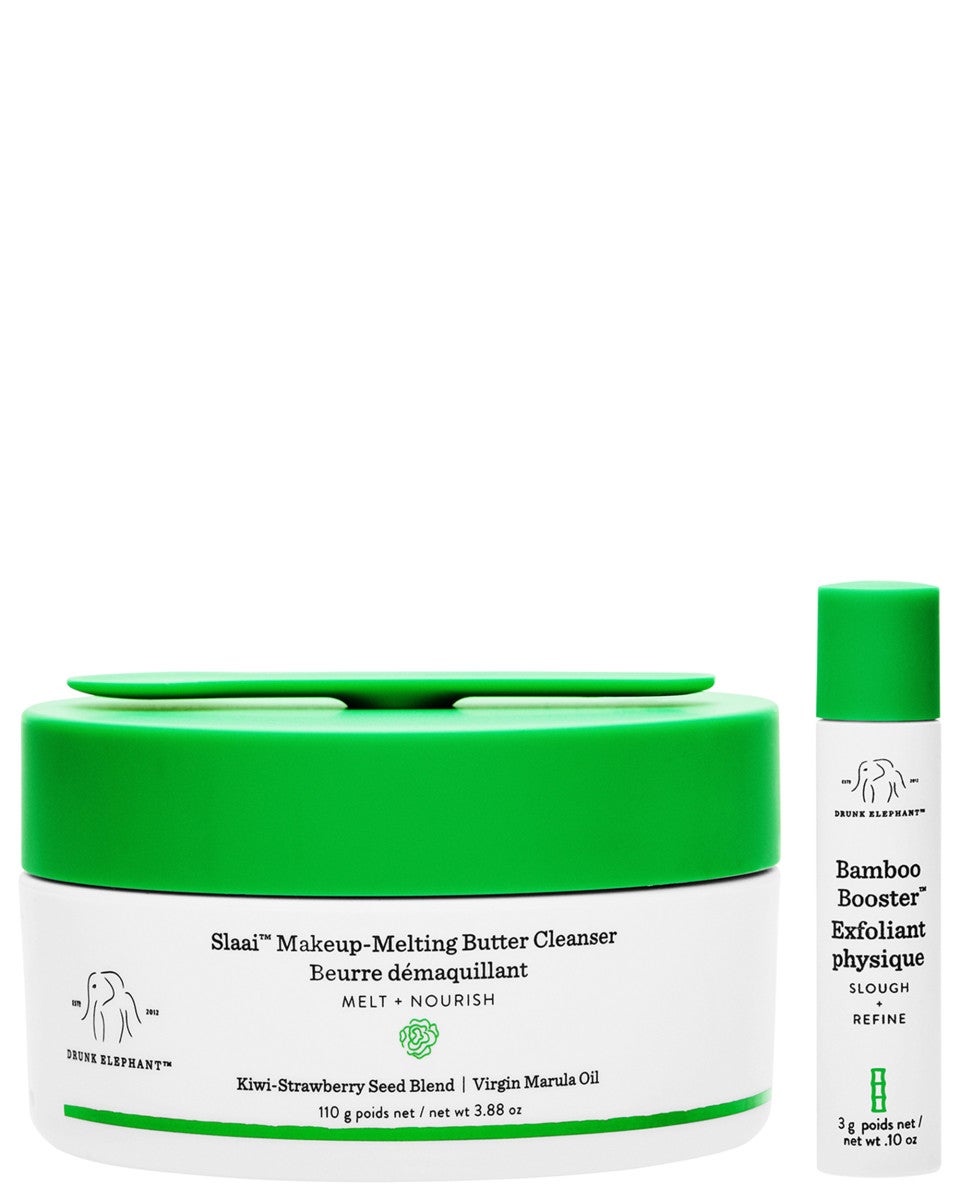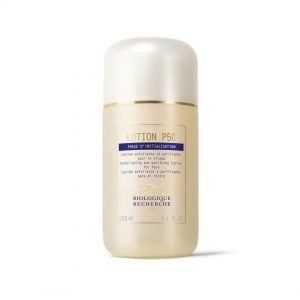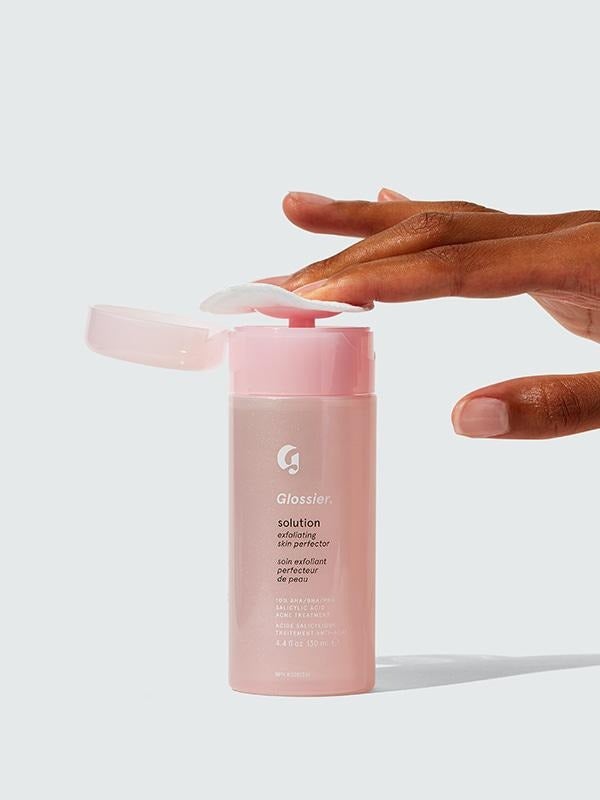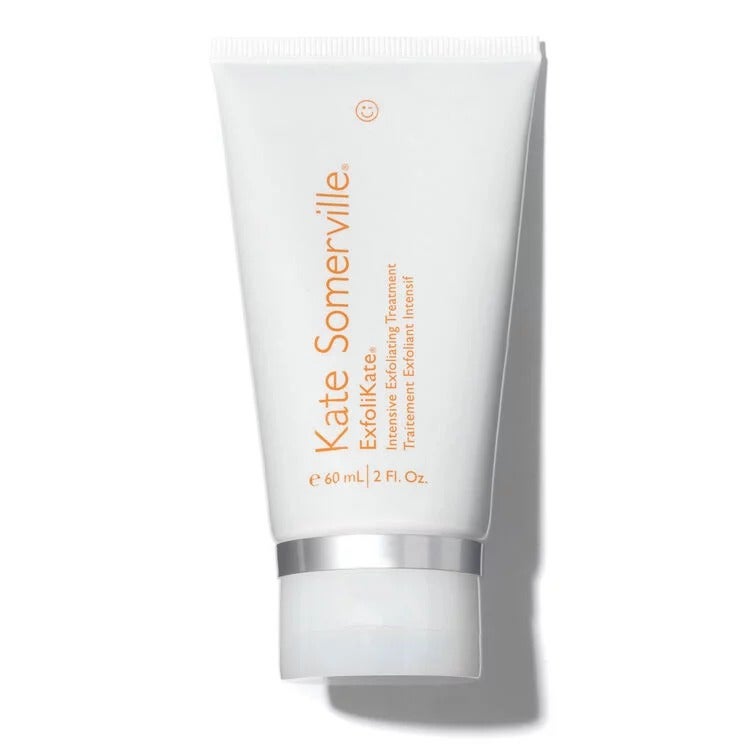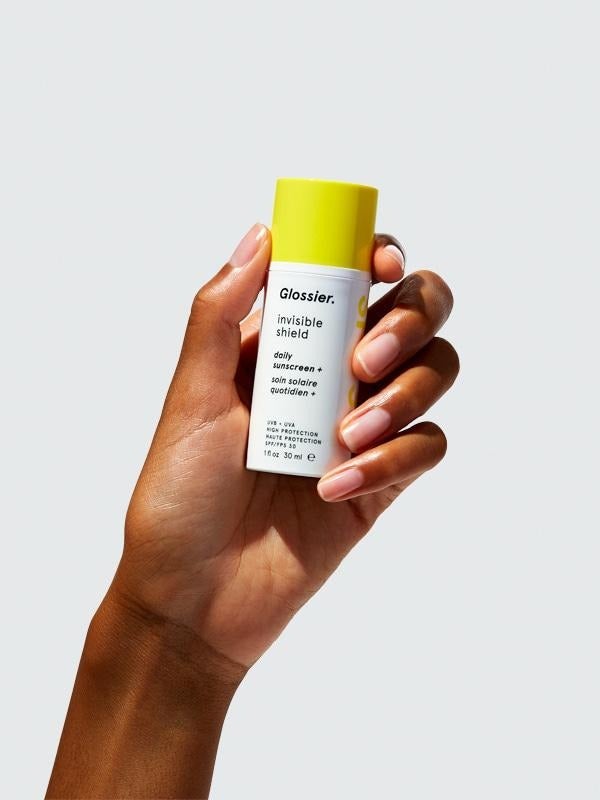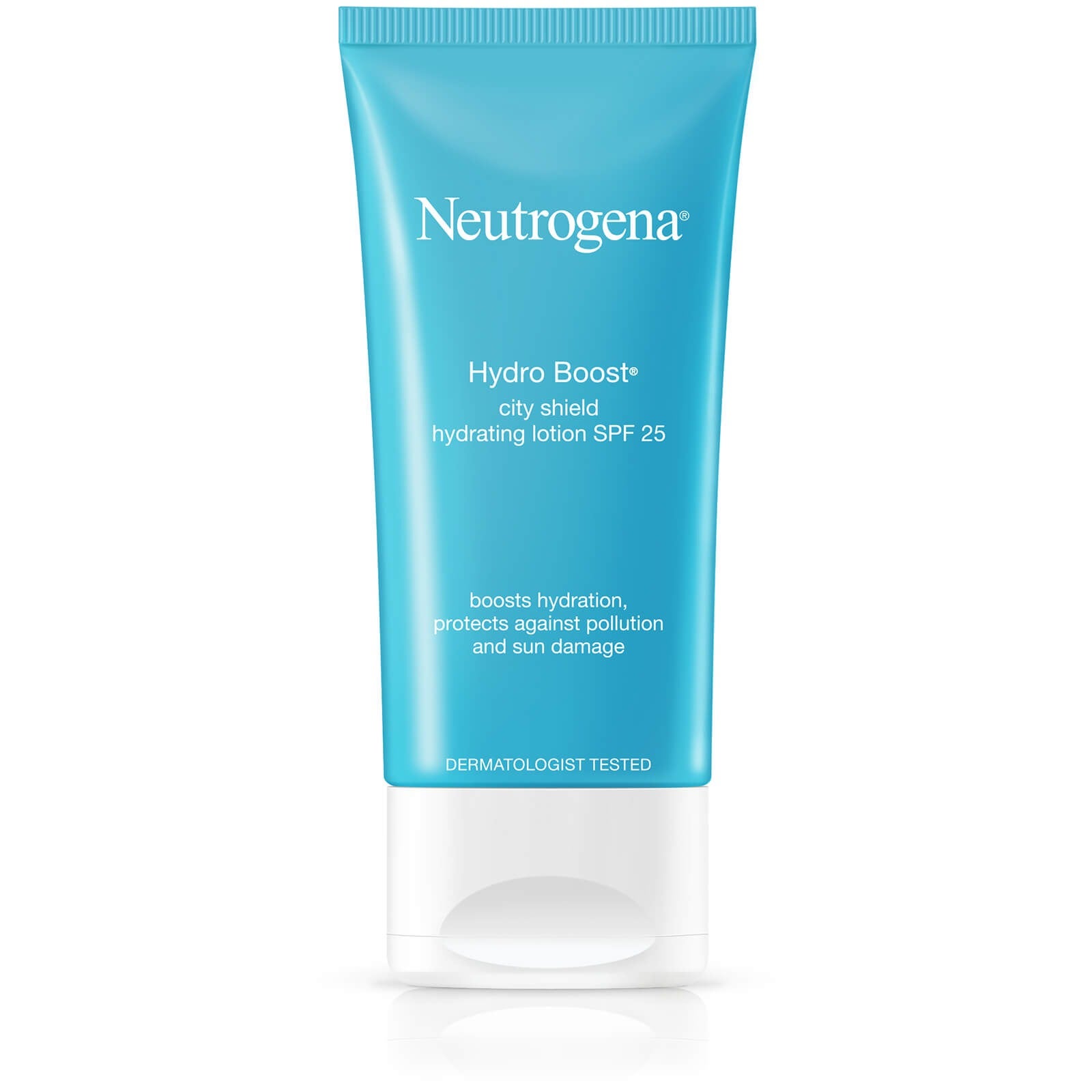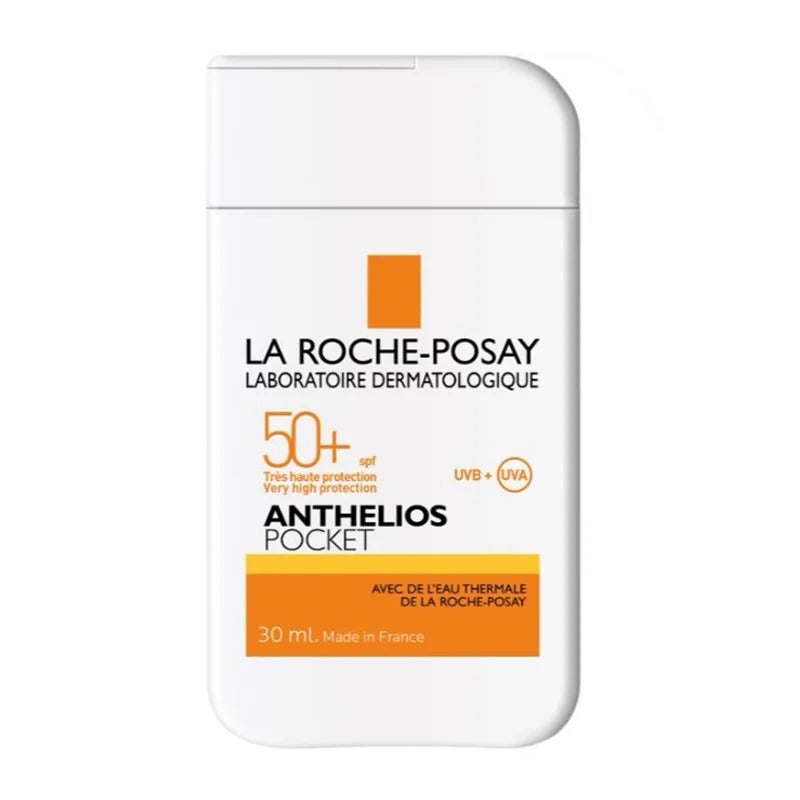How To Keep Your Skin Clear When You Stop Wearing Makeup
Photo: Claudio Lavenia/Getty Images.
If you're lucky enough to be working from home right now, one of the things you might not miss about life pre-social distancing is your rushed getting-ready routine. Hopefully your current WFH situation allows you to ease into the morning, put on your daytime sweats, and skip makeup all together. Not only does forgoing full-beat makeup save time, it also sounds great in theory: Everyone always talks about letting your skin 'breathe'... so why, then, are you still breaking out?
According to Eddie Omar, product chemist and CEO of Phyto-C Skincare, there may be a kind of "skin purge" period that happens when you suddenly stop wearing makeup. "Some people may experience breakouts when they stop applying their everyday makeup," Dr. Omar explains. "It doesn't happen to everyone, but it's normal for your skin to take a few days to acclimate."
AdvertisementADVERTISEMENT
Ahead, Dr. Omar and a few other skin-care pros give us the lowdown on how to bypass any potential "post-makeup purge," and their best practices for how to keep skin clear during this time in isolation (because you have enough to worry about).
Keep Skin Bare
If your skin is breaking out more than usual since you've been going makeup-free, you might think the best quick fix is to just go back to wearing makeup. Aesthetician and skin-care expert Renée Rouleau says that's not advisable, as covering the skin won't help the condition of it. "Generally, makeup tends to clog the pores of the skin," she says. "Wearing liquid foundation and silicone-based primer may actually make breakouts worse, especially if your skin is oily or acne-prone. During this time, the best thing you can do is give your skin a break from all potential pore-clogging products."
...But Don't Forget To Wash Your Face
Board-certified dermatologist Marnie Nussbaum, MD, echoes Rouleau's sentiments. "Even if your skin is breaking out a bit now, it should come to balance its own oil production in time," she explains. "However, its still super important to wash your face properly — at least once a day, if not more often — to remove any grime and sweat, which will still accumulate when you're indoors and can cause breakouts."
Skip Heavy Or Fragranced Creams
Now is the time to take inventory of the molecular weight of your skin-care products. "As mindful as you're being about the makeup you're not putting on your skin, you should be likewise aware of heavy, occlusive creams you're wearing," Dr. Nussbaum explains — meaning, a moisturiser that may be clogging your pores. "Any topical product that's too heavy on the skin may cause blackheads, whiteheads, and pimples. Your skin may also be set off by chemicals and fragrance, especially during this time of heightened stress and sensitivity, so less is more in terms of layering multiple skin-care products on top of each other."
AdvertisementADVERTISEMENT
Add Exfoliation
An important skin-care step that's easy to overlook is routine exfoliation. "It’s great to implement exfoliators to refresh and renew skin and keep your complexion from looking dull," Dr. Omar says — he likes chemical exfoliants from fruit enzymes, like papaya and pineapple. Lindsay Malachowski, an aesthetician at Skinney Medspa in Manhattan, says she sees the best results with a daily liquid toner like Biologique Recherche P50. "Our clients love the P50 lotion because it does it all: exfoliates, hydrates, and balances the pH of the skin," she explains. "All of this effectively unclogs congestion, and both treats and prevents breakouts. I usually recommend following a toner with a serum or lightweight moisturiser and sunscreen."
Don't Forget SPF
Rouleau is quick to note that the benefit of some of the best foundations and tinted moisturisers on the market is that they offer an extra layer of sun protection, which you may be losing when you go makeup-free. "Some foundations, even if they don’t say they have SPF in it, contain natural SPF ingredients like titanium dioxide, so they offer UV protection from damaging rays that come through windows in your home or apartment," Rouleau explains. "This means that you’ll want to be extra diligent about wearing your daily sunscreen to keep your skin covered, since foundation isn’t giving an extra layer of protection."
Take Care Of Your Skin From The Inside Out
Of course, we can't talk about the current state of your skin without acknowledging the fact that your body's stress response is likely especially high in the context of the COVID-19 pandemic. To that end, Dr. Nussbaum says it's especially important to be kind to yourself, and to recognise your skin's unique response to the stress. "During this time, you're probably feeling frazzled and not sleeping enough, so taking care of your body holistically is essential for the health of your skin," she says. "The skin cells get their energy from the body's blood and oxygen supply, so if nothing else, just stick to the basics, like eating a well-balanced diet and drinking enough water." While you allow your skin breathe, don't forget to give your active mind and body the same permission.
The World Health Organization says you can protect yourself by washing your hands, covering your mouth when sneezing or coughing (ideally with a tissue), avoid touching your eyes, nose and mouth and don't get too close to people who are coughing, sneezing or with a fever.
AdvertisementADVERTISEMENT








